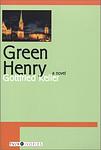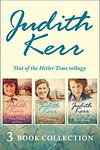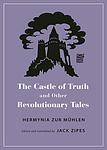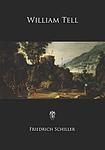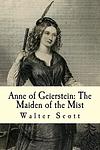The Greatest "Historical fiction, Switzerland" Books of All Time
Click to learn how this list is calculated.
This list represents a comprehensive and trusted collection of the greatest books. Developed through a specialized algorithm, it brings together 300 'best of' book lists to form a definitive guide to the world's most acclaimed books. For those interested in how these books are chosen, additional details can be found on the rankings page.
Genres
Historical fiction is a genre of literature that combines fictional stories with real historical events, settings, and characters. These books often take place in a specific time period and are based on research and factual information, but also include imaginative elements to create a compelling narrative. Historical fiction allows readers to experience the past in a unique and engaging way, while also providing insight into the social, cultural, and political issues of the time.
Countries
Date Range
Reading Statistics
Click the button below to see how many of these books you've read!
Download
If you're interested in downloading this list as a CSV file for use in a spreadsheet application, you can easily do so by clicking the button below. Please note that to ensure a manageable file size and faster download, the CSV will include details for only the first 500 books.
Download-
1. The Magic Mountain by Thomas Mann
In this novel, the protagonist, a young, ordinary man, visits his cousin at a tuberculosis sanatorium in the Swiss Alps. Intending to stay for only a few weeks, he ends up remaining there for seven years, becoming a patient himself. The book explores his experiences and relationships with other patients and staff, delving into philosophical discussions on life, time, and the nature of disease. It also provides a vivid portrayal of the European society and intellectual life on the eve of World War I.
-
2. Doctor Faustus by Thomas Mann
The novel is a reimagining of the Faust legend set in the context of the first half of the 20th century and the turmoil of Germany in that period. It tells the story of a composer who makes a pact with the devil, exchanging his soul for unlimited creative genius. The protagonist's life and work reflect the cultural and political journey of Germany leading up to World War II, providing a deep exploration of the individual's role in a society undergoing dramatic change. The novel is also a profound meditation on the nature of time, the art and the artist, and the destructiveness of human ambition.
-
3. Green Henry by Gottfried Keller
"Green Henry" is a semi-autobiographical novel that chronicles the life of a young man who dreams of becoming a painter but faces countless obstacles on his journey. The protagonist leaves his Swiss village and travels to Munich to study art, but his lack of discipline and financial difficulties force him to return home. After his mother's death, he begins to reassess his life and eventually finds his place in society. The novel explores themes of identity, ambition, and the struggle between individual desires and societal expectations.
-
4. Belle du Seigneur by Albert Cohen
"Belle du Seigneur" is a tragic love story set in the 1930s, revolving around a high-ranking Jewish official who works for the League of Nations and his passionate affair with a married Swiss aristocrat. The narrative delves deep into their intense relationship, exploring themes of obsession, self-destruction, and existential despair, all set against the backdrop of the impending Second World War. The novel is also notable for its satirical portrayal of diplomatic life and its exploration of Jewish identity.
-
5. The Bells of Basel by Louis Aragon
"The Bells of Basel" is a novel set against the backdrop of the early 20th century, focusing on three main characters: a revolutionary, a prostitute, and a corporate lackey. Each character represents a different aspect of society, and their stories intertwine to create a rich tapestry of life during this tumultuous period. The novel explores themes of love, betrayal, and political unrest, offering a biting critique of capitalism and the bourgeoisie.
-
6. When Hitler Stole Pink Rabbit by Judith Kerr
"When Hitler Stole Pink Rabbit" is a poignant and autobiographical novel that follows the life of a young Jewish girl named Anna and her family as they flee Germany in the 1930s to escape the rise of the Nazi regime. Through Anna's eyes, the book explores the challenges and hardships faced by refugees, as well as the loss of identity and sense of belonging. It is a touching story of resilience, courage, and the power of family bonds in the face of adversity.
-
7. The Black Brothers by Lisa Tetzner
"The Black Brothers" is a captivating historical novel set in 19th-century Switzerland. It tells the story of four brothers, who, due to unfortunate circumstances, are forced to work as chimney sweeps. Through their perseverance and unity, they navigate the harsh realities of their profession and form a strong bond with each other. The book explores themes of resilience, friendship, and the fight for justice, making it a compelling and heartwarming read.
-
8. William Tell by Friedrich Schiller
The play centers around the legendary Swiss hero, William Tell, who defies the oppressive Austrian authority represented by the tyrannical bailiff, Gessler. Set in the early 14th century, it explores themes of tyranny, freedom, and justice. Tell is driven to rebellion after being forced to shoot an apple off his son's head as punishment for not bowing to Gessler's hat, a symbol of Austrian control. His successful defiance becomes a rallying point for a Swiss uprising against Austrian rule, culminating in the struggle for and achievement of Swiss independence. The play highlights the moral righteousness of fighting for freedom and the importance of individual and collective resistance against tyranny.
-
9. Anne Of Geierstein by Sir Walter Scott
"Anne of Geierstein" is a historical novel that delves into the political and romantic intrigues of 15th-century Europe. The story follows Arthur Philipson, a young English merchant, who travels through the Swiss Alps and becomes entangled in the local conflicts between the Swiss and the powerful Duke of Burgundy. Along the way, Arthur meets and falls in love with the mysterious and enchanting Anne of Geierstein, who possesses seemingly supernatural abilities. As their relationship develops, Arthur is drawn deeper into the political machinations of the era, including the efforts to secure peace and alliances among the warring factions of Europe.
-
10. Pilgrim by Timothy Findley
"Pilgrim" is a novel that weaves together historical fiction with elements of fantasy, telling the story of a man who cannot die. After numerous attempts at taking his own life, the protagonist is admitted to a psychiatric clinic in Zurich, where he comes under the care of Carl Jung, the famous psychoanalyst. Throughout the narrative, the immortal man's past lives unfold, intersecting with key figures and events in history, from Leonardo da Vinci to the First World War. As Jung delves into the man's psyche, the novel explores themes of art, time, love, and the nature of the human soul, questioning the boundaries of reality and the profound longing for mortality and finality.
Reading Statistics
Click the button below to see how many of these books you've read!
Download
If you're interested in downloading this list as a CSV file for use in a spreadsheet application, you can easily do so by clicking the button below. Please note that to ensure a manageable file size and faster download, the CSV will include details for only the first 500 books.
Download

